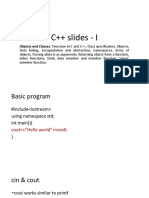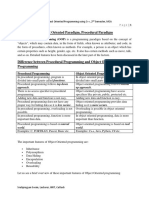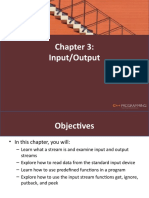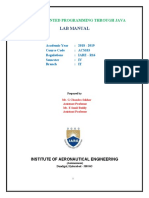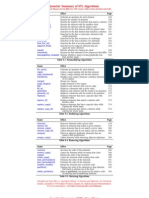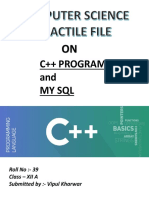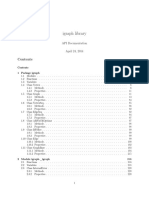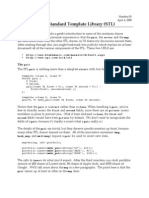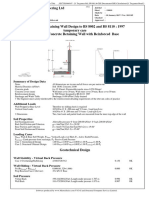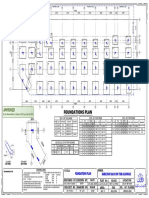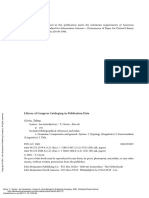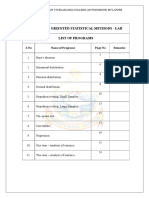0% found this document useful (0 votes)
245 views22 pagesC++ STL for CS Students
This document provides information about the C++ Standard Template Library (STL) course being taught in the summer of 2018. It lists the instructor and teaching assistants for the course. It then provides an overview of the C++ standard library, which includes the C standard library, input/output streams, the STL, and miscellaneous utilities. The rest of the document discusses key aspects of the STL, including containers like vector, iterators, and algorithms. Examples using the Tracer class are provided to demonstrate how to use vectors, iterators, and algorithms.
Uploaded by
Sami Abdelgadir MohammedCopyright
© © All Rights Reserved
We take content rights seriously. If you suspect this is your content, claim it here.
Available Formats
Download as PDF, TXT or read online on Scribd
0% found this document useful (0 votes)
245 views22 pagesC++ STL for CS Students
This document provides information about the C++ Standard Template Library (STL) course being taught in the summer of 2018. It lists the instructor and teaching assistants for the course. It then provides an overview of the C++ standard library, which includes the C standard library, input/output streams, the STL, and miscellaneous utilities. The rest of the document discusses key aspects of the STL, including containers like vector, iterators, and algorithms. Examples using the Tracer class are provided to demonstrate how to use vectors, iterators, and algorithms.
Uploaded by
Sami Abdelgadir MohammedCopyright
© © All Rights Reserved
We take content rights seriously. If you suspect this is your content, claim it here.
Available Formats
Download as PDF, TXT or read online on Scribd
/ 22









